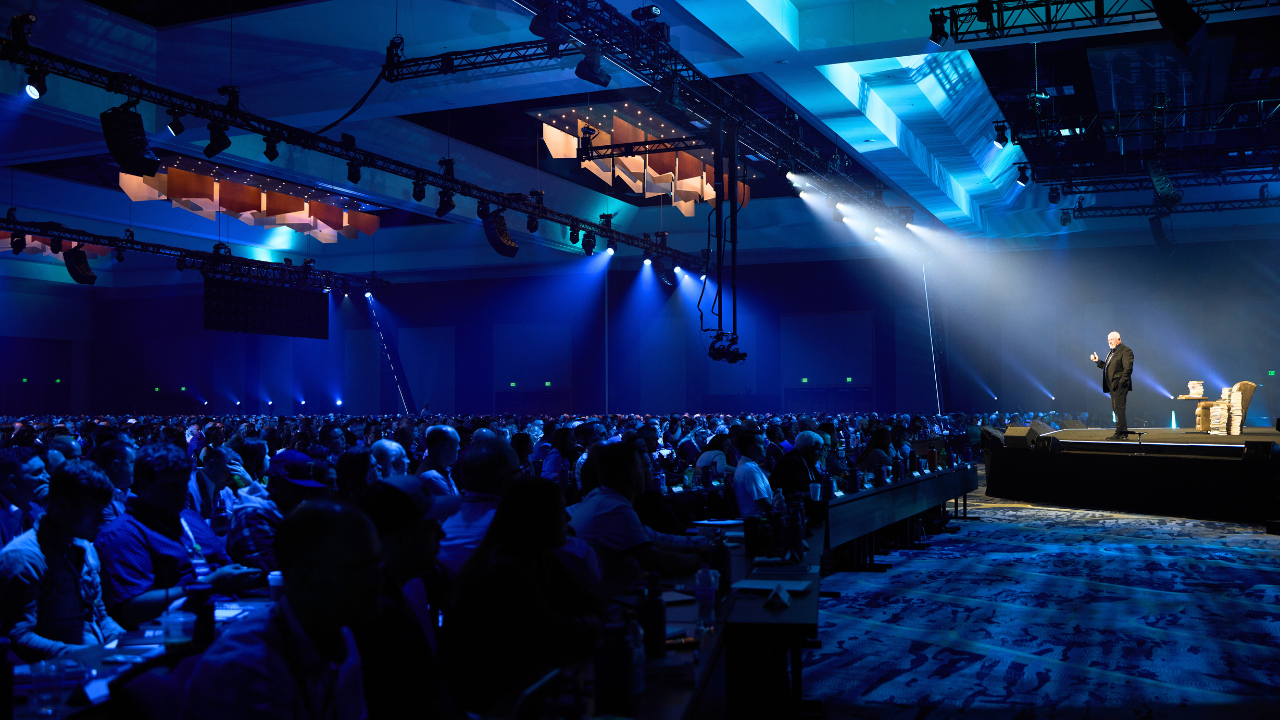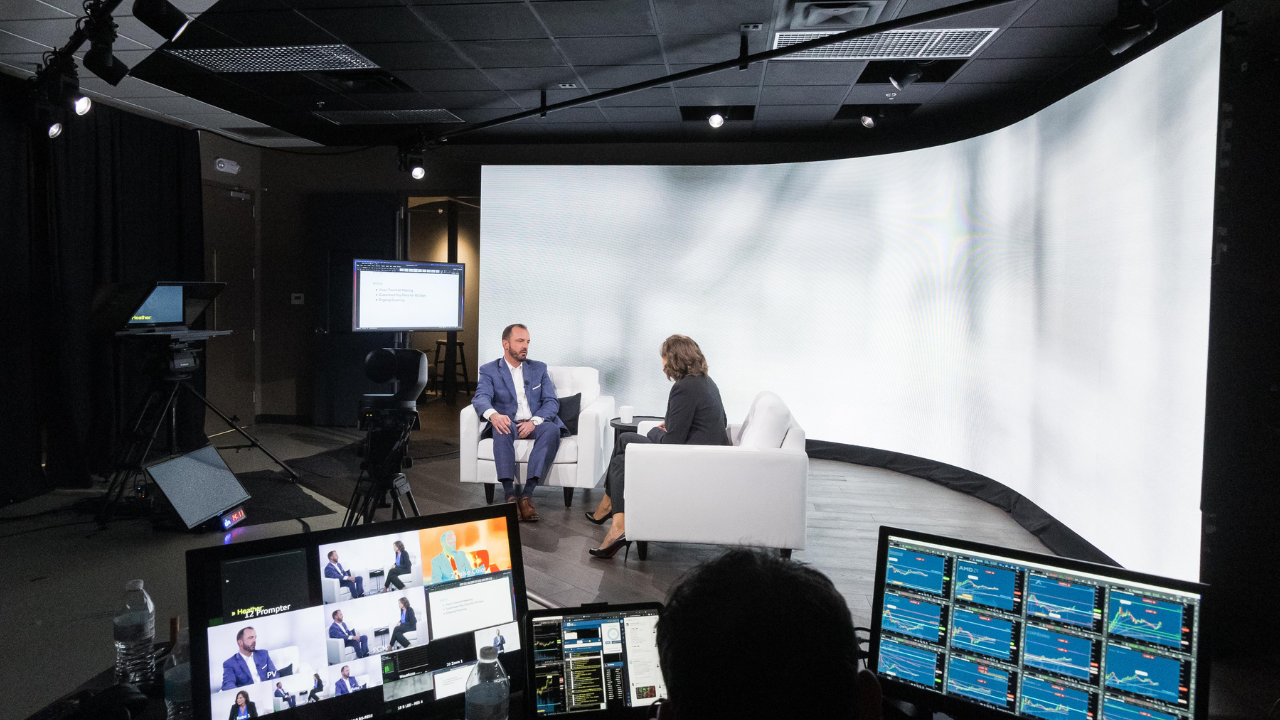4 Things To Consider Before Choosing an Audio Visual Company
Published on: Tuesday, February 15, 2022 - 7:00am

Live events are enormous undertakings, and finding the right AVL production partner to help carry out those events can make a huge difference in their success.
Below are four major points for you to consider when looking for an AVL partner. These will help you find the right partner as well as facilitate an efficient working relationship with that partner — allowing you to achieve the best live event experience possible.
1. Plan Far Enough Ahead for a Successful Event
Have you ever had an event where one person (let’s call him Bobby) seemed to be holding the whole thing together through sheer energy and determination? Bobby sprinted from task to task, resolving issues and keeping the whole operation running smoothly.
You might come away from an event like that thinking, “Thank God for Bobby.”
Well you’re not wrong. But wouldn’t it be better for everyone if Bobby didn’t have to run around — frantic, stressed, and under a high-pressure time constraint — managing the entire event?
When you get started on events far enough ahead of time, many problems can be planned for in advance, or avoided altogether.
Ideally, the best time to start talking with an AVL production partner for your event is 6-12 months before the date, and 9-12 months for larger events. While we can and have pulled off events in shorter timespans than that, starting the process farther out will help you avoid some of the pitfalls of a constricted planning window.
What Happens When You Wait?
Most of the time, you have your venue secured at least six months, if not a year, before your event date. But due to a variety of factors, sometimes an AVL partner isn’t contacted until three months — or even one month — before the event. This can lead to some unintended consequences.
Loss of Your Preferred Partner
The first consequence of such short lead time is that you may not get the audio visual company you want. They may be fully booked since it’s so close to the event date.
Or, they may turn down the job because they don’t feel able to deliver a product up to their standards in such a tight timeline.
Prices Go Up (For Everything)
It’s unfortunate, but the shorter the lead time, the higher the prices. Everything costs more at the last minute.
Equipment rentals and cross-rentals become more expensive. Trucking costs and labor rates go up. And as anyone who has ever purchased a late plane ticket knows, travel costs rise steeply as travel dates approach.
Even your AVL partner’s prep costs rise because they don’t have a months-long schedule to slot tasks into. Rather, they have to accomplish tasks urgently, often by shuffling around other priorities and increasing the amount of labor they use for your project.
All of this translates into a much higher price for you as the client.
Quality Suffers
Now, we’re not saying your show will be a disaster if you wait until three months out to plan, but some parts of it will suffer.
You and your AVL partner won’t be able to hire your preferred crew for the event. With the high demand and low supply for industry labor right now, booking top-tier crew on short notice just doesn’t work. Their schedules become full, and they can’t say yes even if they want to.
Additionally, you may not get the equipment you want or expect. Similar to hiring your preferred crew, you can only rent your preferred equipment if it’s available. Equipment is limited, especially right now. If you wait until too close to the event to plan for your needs, you may end up having to settle for a lesser version of the item you wanted.
Even worse, you could find that certain design elements you were counting on — LED walls, very specific lights, etc. — are unavailable when you need them.
All of this is to say, don’t underestimate the power of planning ahead. It gets you your preferred provider, labor, and equipment, and it does wonders for your budget. Planning ahead allows room for solid processes that keep everything running smoothly, which means you don’t have to depend on a “Bobby” to hold everything together on event day.
2. Know Your Budget (And Be Willing To Talk About It)
Most times, clients are reluctant to talk budget with their AVL partner right away. But budget is one of the most critical pieces of the puzzle to share with your partner from the beginning.
Some may think that by keeping their budget close to the vest, they have a better chance of coming in under budget. The reality is, if you don’t share your budget with your production partner, this does not happen.
What happens instead is that the AVL company will design your event as best they can based on what you want, and it will be over budget because they don’t know what they’re working with. Then you have to go through the disheartening and time-consuming process of finding a new design that fits your budget by reducing and cutting out components of the first iteration.
To save time and avoid disappointment, share your budget — even if it’s just a ballpark — right from the beginning. A good production partner can then let you know if your budget falls into the vicinity of your event expectations. If it doesn’t, you can work together to find a way to achieve what you’re trying to accomplish for a budget you can afford.
In some cases, once a client knows exactly how far their budget can go, higher-ups will then decide to expand that budget because the outcome of the event is so important to them. But you can’t get to that point until much later in the game if you don’t share your existing budget up front.
3. Focus on Results (Not Equipment)
You partner with an AVL production company for a reason. Your production partner consists of a team of experts who know live events and how to pull them off, repeatedly. They know the logistics, the personnel, and the equipment.
When talking with your AVL provider about your event, focus on the results you want to achieve. Cast your vision for every space involved. Provide them a picture of how you want the place to look, feel, and sound.
But don’t dictate the nitty-gritty.
In an initial conversation about a six-figure show, don’t have a tech come in and talk specifics about the particular kind of console they need. This is missing the big picture.
Or, someone in your organization might think a specific piece of equipment is necessary to run an event, so you request it. But your AVL partner isn’t familiar with that item. They have to cross-rent it, which adds unnecessary cost. And especially if they’re running the equipment during your event anyway, you want them to use equipment they’re experts in.
If you communicate the results you want to achieve to your production partner, you’re giving them a stake in the event. It becomes their show as much as yours, and they will take expert ownership of all those smaller decisions to make sure every piece of equipment, every detail, achieves the effect you’re going for.
4. Choose a Partner That Fits YOU
Different audio video companies have different strengths, preferences, and past experience. It’s important to choose an AVL partner that fits you and your goals.
Value Alignment
Consider your values and what you stand for. Are you buttoned-up and all business? Or are you a religious organization? Then you may not want to choose a rock ‘n’ roll / touring production company. They won’t be able to represent you all that well because there will be an absence of understanding and value alignment.
Track Record and Reputation
Another important task is to research the kind of events the audio visual company you’re considering usually puts on. Are they the same kind of event you need? Just because a company usually produces events for Garth Brooks doesn’t mean they can successfully run a spoken-word hotel ballroom show.
No matter how prestigious their other clients are, if a production company doesn’t usually run the kind of event you need, they’re probably not a good fit.
Good Communication
Another trait to watch for when contacting potential AVL production partners is good communication.
Do they make it clear that they want to be a part of your project? Are they interested and asking the right questions? Did they care enough to do research on you and your event before the meeting, or did they come in blind?
You should feel like an audio visual company is trying to sell their AVL services to you, not like you’re trying to sell your event to them.
Dedicated Team and Specialists
Lastly, one great characteristic to look for in an AVL production partner is a dedicated team that takes care of events. This can be full-time employees as well as committed freelancers who regularly work with the business.
When audio visual companies only uses a revolving door of freelancers, you can be sure you won’t get their full attention ahead of time. The difference between these workers and dedicated specialists is that rotating freelancers operate on a show-by-show basis. They don’t really have the ability to plan farther ahead than the next job, and you just don’t get as much of their attention.
Conversely, full-time employees and dedicated freelancers operate within the framework of the production company. They know what their next jobs are, and they think multiple shows ahead.
It’s also incredibly helpful to get a designated lead from your AVL partner. They will serve as your single point of contact for problem-solving, new requests, etc. This way, you know exactly who to go to when you run into an issue, and you know that person will come to you with any issues from their side as well.
Start Success Early
Don’t let events sneak up on you or a murky budget get you started on the wrong foot. When you plan well ahead, know (and share) your budget, focus on results, and choose a good-fit AVL partner, you make great strides in achieving a successful event months before it even takes place.



